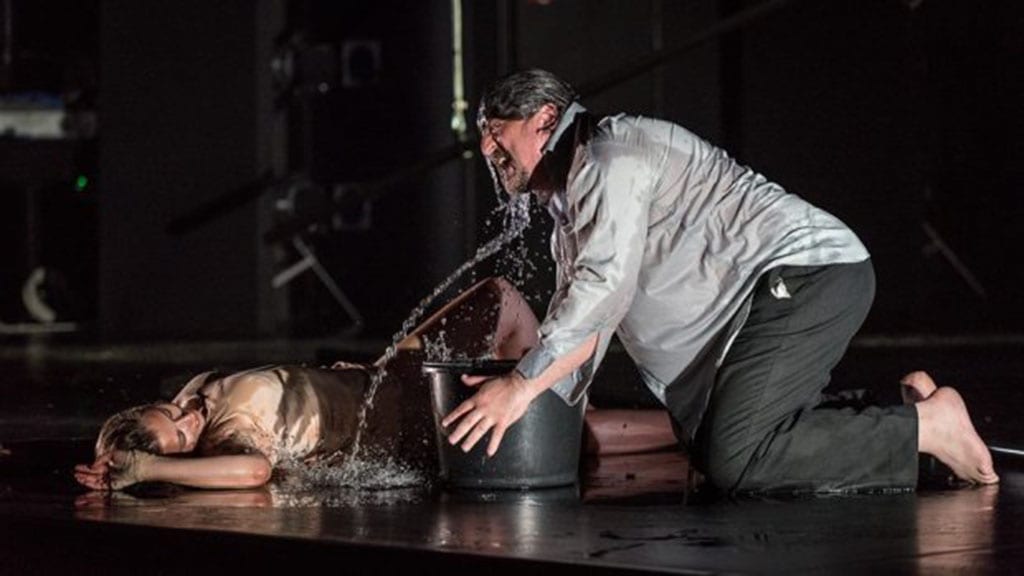In this stripped-back, deeply psychological production of Macbeth, the stage is dark and hung with criss-crossing trapeze wires – a questionable move, but one which ultimately justifies itself, as the removal of distracting scenery makes us realise just how much this play focuses on mental spaces over physical ones. The play opens with the actors walking onstage, one by one or in groups – significantly, Macbeth and his wife do not stand together, signifying their complex relationship from the very beginning of the show.
The order of some dialogue is changed, and scenes are cut or combined to make the play move along as fast as possible. Some of these altered scenes are initially confusing, but once we let go of our preconceptions we are swept along on a tide of ambition and revenge, the action unceasing until about twenty minutes before the end, when it slows down somewhat. The witches (of whom there are seven, not three) do not speak their lines in this performance – instead, they sit silently, suspended on the wires, naked and covered only by their ankle-length hair, as Banquo, Macbeth and Macduff whisper their lines. Although it can be confusing when Macbeth converses with himself, these scenes provoke questions about the witches’ existence, and how much of their prophecy is really in Macbeth’s own mind.
There are few props in this production: cardboard crowns, a bucket of water, a knife and some bottles. This works well, as the removal of extraneous elements from the performance gives the actors a chance to explore their characters more deeply, and their physicality, despite any set or props, is impressive. Most of the non-essential characters are also cut, or reduced to walk-on parts – Malcolm, Donalbain and Fleance, for example, are all played by children, who have no lines, as the scenes in England are cut. This, perhaps surprisingly, doesn’t detract from the play – instead, we are given a much more streamlined version of events, in which Macbeth is clearly the central figure.
Towards the end, the production does slow down somewhat, and becomes more confusing: it is unclear what is happening to Lady Macduff after Macbeth’s second visit to the witches, while the final fight is cut completely. Macbeth is still standing centre stage as his successor is crowned in the background, and Lady Macbeth also remains onstage the whole time, making the finale somewhat perplexing. It feels like this production is leading up to something, but the finale is somewhat disappointing – despite the slightly lacklustre ending, however, this is an enjoyable and insightful production of Macbeth, complete with some truly remarkable acting and set design.

